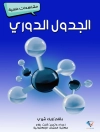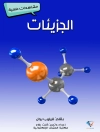Mass spectrometry is one of the most widespread technologies in chemistry and has been increasingly used in biology with the rise of omics sciences. This book summarizes some important methodological approaches in mass spectrometry and applications in the field of chemical biology.
The core chapters build on basic concepts introduced in the opening chapter and explore established fields such as high throughput screening, proteomics and metabolomics. Emerging applications of mass spectrometry in elucidating biosynthetic pathways, enzyme mechanisms and protein-protein interactions are then presented. Connections between these diverse research fields are highlighted throughout. The book concludes with a discussion of databases and future perspectives.
This book will be a useful tool to early chemical biology researchers wishing to incorporate mass spectrometry as a tool in their research.
Table of Content
Introduction; Introduction to Mass Spectrometry Instrumentation and Methods Used in Chemical Biology; Metabolomics; Proteomics; Mass Spectrometry for Discovering Natural Products; Applications of Mass Spectrometry in Synthetic Biology; Studying Enzyme Mechanisms Using Mass Spectrometry, Part 1: Introduction; Studying Enzyme Mechanisms Using Mass Spectrometry, Part 2: Applications; Chemical Biology Databases; Perspectives for the Future
About the author
Professor Norberto Peporine Lopes obtained B.Sc. and M.Sc. degrees in Pharmacy and a Ph.D. in Chemistry from the University of Sao Paulo. At present, he is Full Professor of Organic Chemistry at the University of Sao Paulo in Ribeirao Preto and head of the Physics and Chemistry Department of the School of Pharmaceutical Sciences at the Ribeirao Preto University of Sao Paulo and the Research Support Center in Natural and Synthetic Products (NPPNS). He is a board member of the Brazilian Chemical Society and the Brazilian Society of Mass Spectrometry. His research deals with organic chemistry, with an emphasis on multidisciplinary research into natural products chemistry using mass spectrometry.
Ricardo Roberto da Silva obtained his M.Sc. Degree in Genetics from the Federal University of Viçosa and a Ph.D. in Genetics/Bioinformatics from the University of Sao Paulo in Ribeirão Preto. Currently, Ricardo is a postdocoral researcher at the Research Support Center in Natural and Synthetic Products (NPPNS), working on the establishment of metabolomics analysis platforms.












